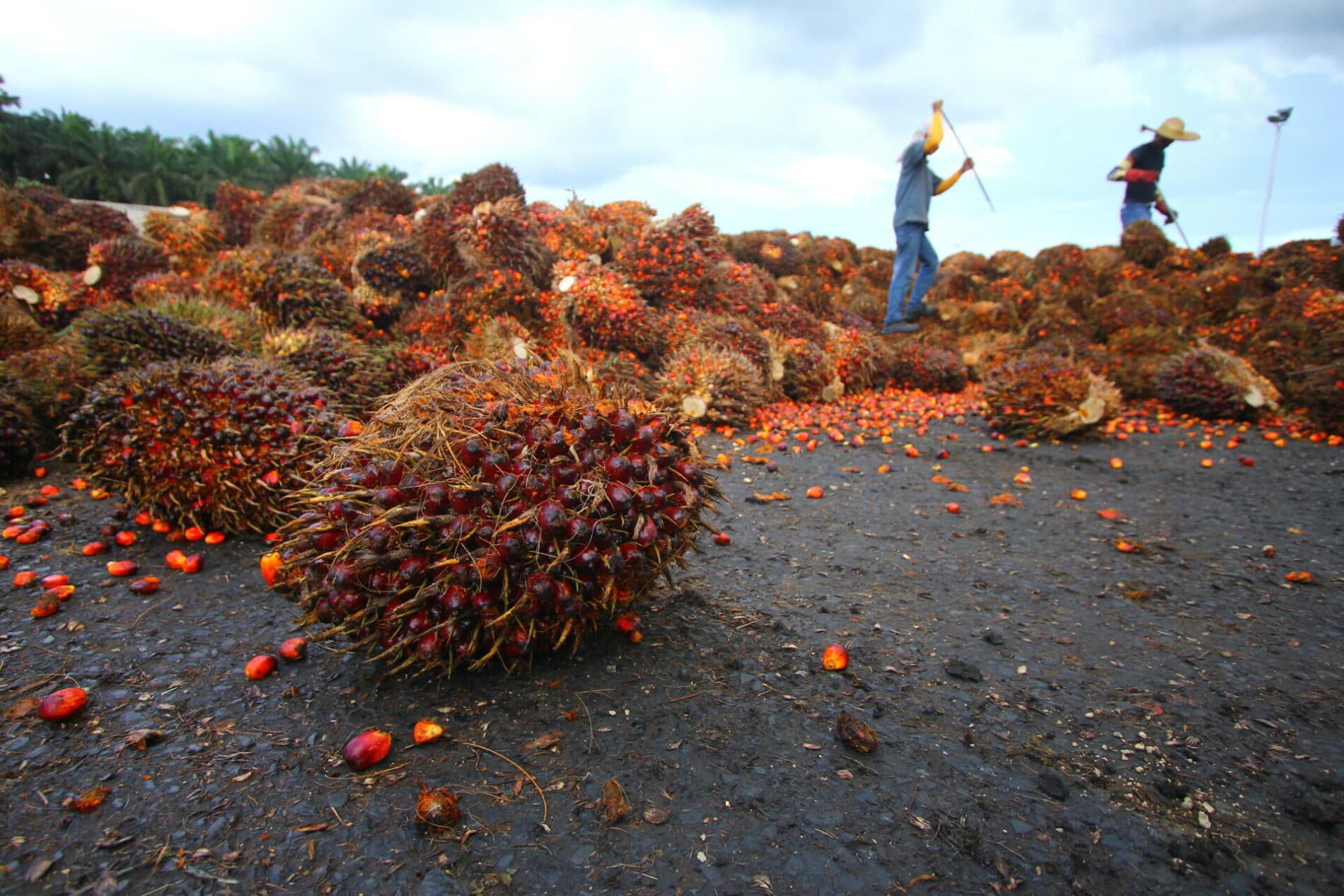CRR Report (8th July 2022) – EU Deforestation Regulation: Implications for the Palm Oil Industry and Its Financers

EU Deforestation Regulation: Implications for the Palm Oil Industry and Its Financers
EU Deforestation Regulation: Implications for the Palm Oil Industry and Its Financers
Chain Reaction Research, a coalition of AidEnvironment, Profundo and Climate Advisers, has produced a new report discussing how the European Commission’s upcoming regulation on deforestation-free products will affect the palm oil industry. The law, expected to come into force in 2023, will have implications for the palm oil supply chain actors and its financiers.
Key Findings:
- The EU is a significant importer of palm oil. In 2021, the EU imported 8 million metric tons (EUR 6.3 billion) of palm oil and palm oil products. The majority is currently used for biodiesel and energy, but the EU’s dependence will likely decline due to the Renewable Energy Directive II that requires a gradual phase out of palm oil-based fuels by 2030.
- The Regulation will largely affect imports originating from Indonesia and Malaysia, the largest suppliers to the EU. It would require a mandatory due diligence system for operators and traders. Next to Indonesia and Malaysia, other palm oil-producing countries impacted include Guatemala, Papua New Guinea, Honduras, Colombia, Côte d’Ivoire, Cameroon, and Thailand.
- Besides the EU, the US and UK are also developing laws to regulate commodity-linked deforestation, imposing increased restrictions on palm oil imports. The EU law is the most comprehensive, since it also includes legal deforestation.
- Key implications for the palm oil industry are linked to traceability, smallholder exclusion, leakage, and the cut-off date. The traceability requirement may lead to exclusion of smallholders and costly segregated supply chains, but it could also improve smallholders’ positions in the global marketplace. The law may increase leakage of unsustainable palm oil in Indonesia’s domestic biofuel market and in countries with less strict import requirements. There is also risk of leakage from not including all palm-oil related products, such as PFAD. The 2020 cut-off date could undermine existing industry NDPE commitments that use 2015 as the cut-off.
- The Regulation may impact palm oil supply to the EU and bring about legal and reputational risks for operators and traders that are in breach of the new rules. In contrast to voluntary industry commitments, the law provides a stronger legal basis for enforcing zero- deforestation commitments. In anticipation of the upcoming law, EU member states have started cleaning their countries’ supply chains.
- Compliance costs are relatively low and protect reputation value. Even in a scenario of segregated supply and inclusion of smallholders, EU operators’ compliance costs would be at most 3.5 percent of revenues on embedded palm oil. Proper compliance could protect USD 14.3 billion in reputation value.
Want more information on this project?
Sarah Drost
Senior Expert - Deforestation-free Supply Chains
